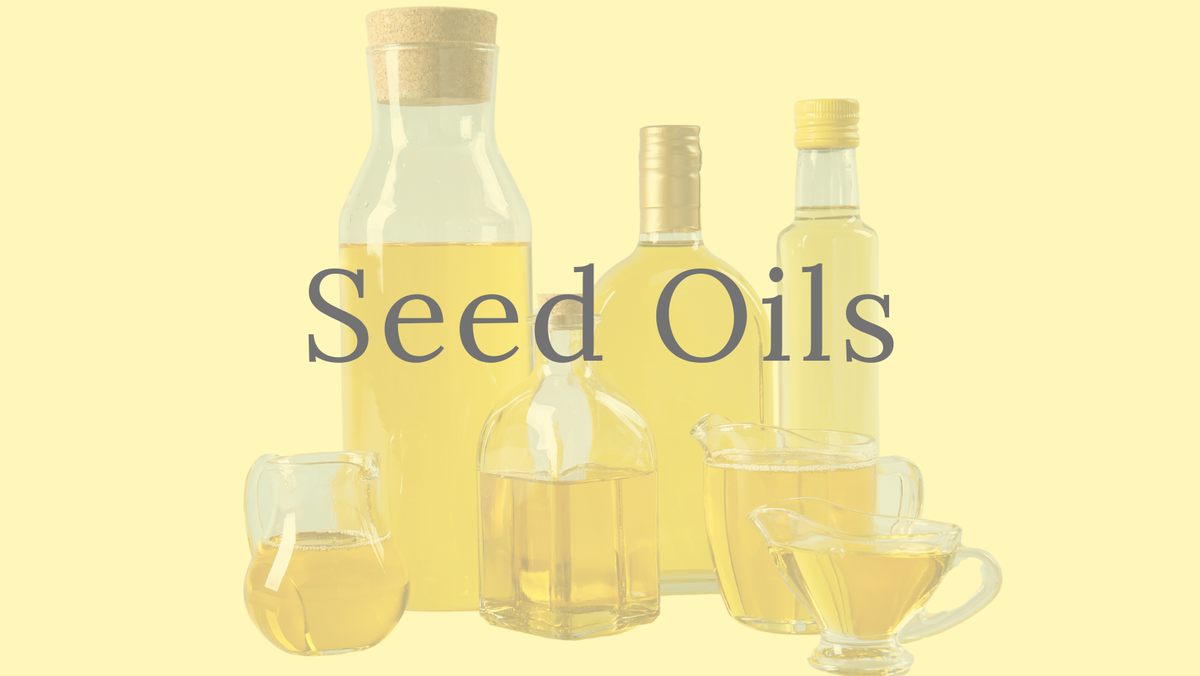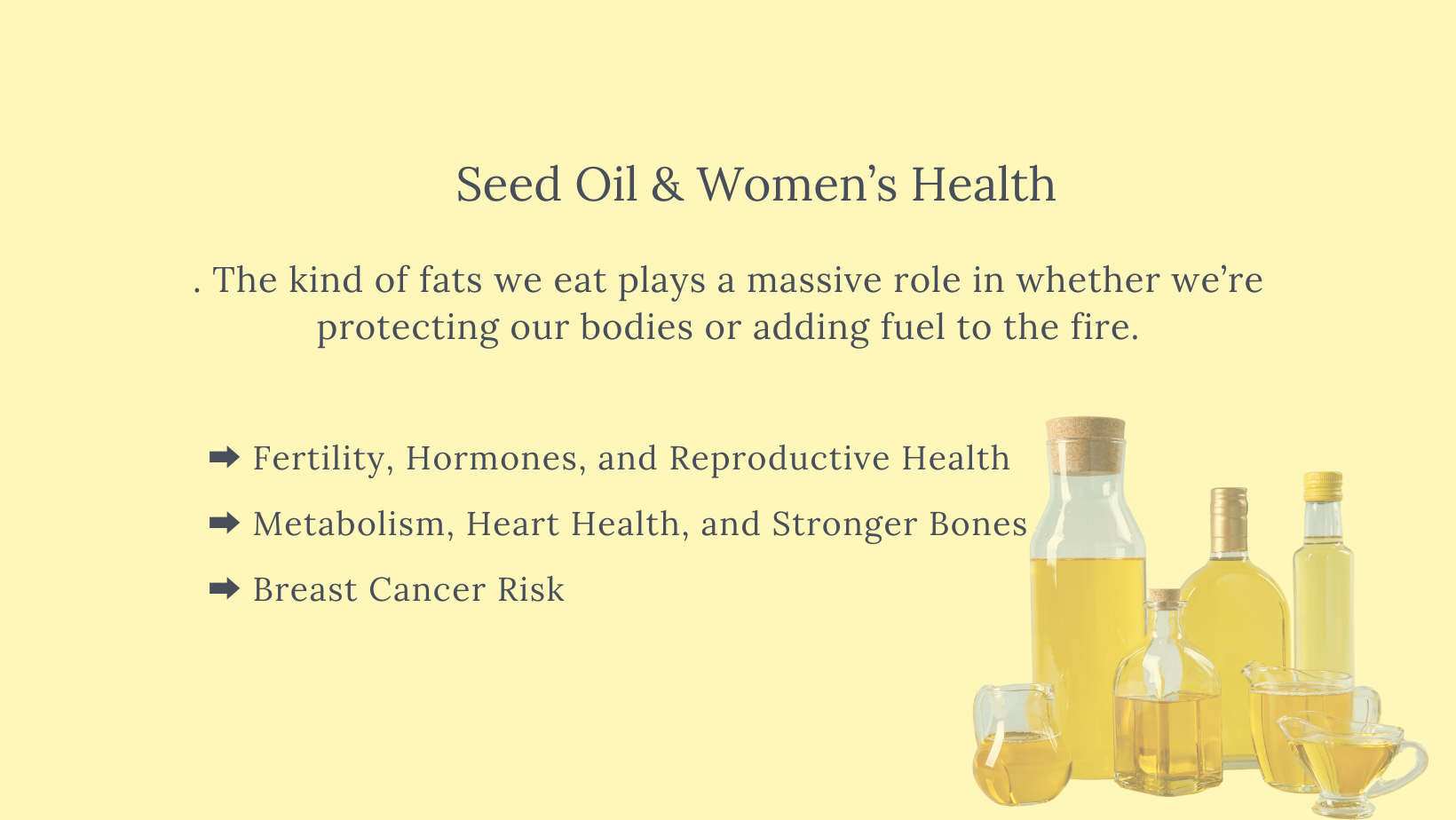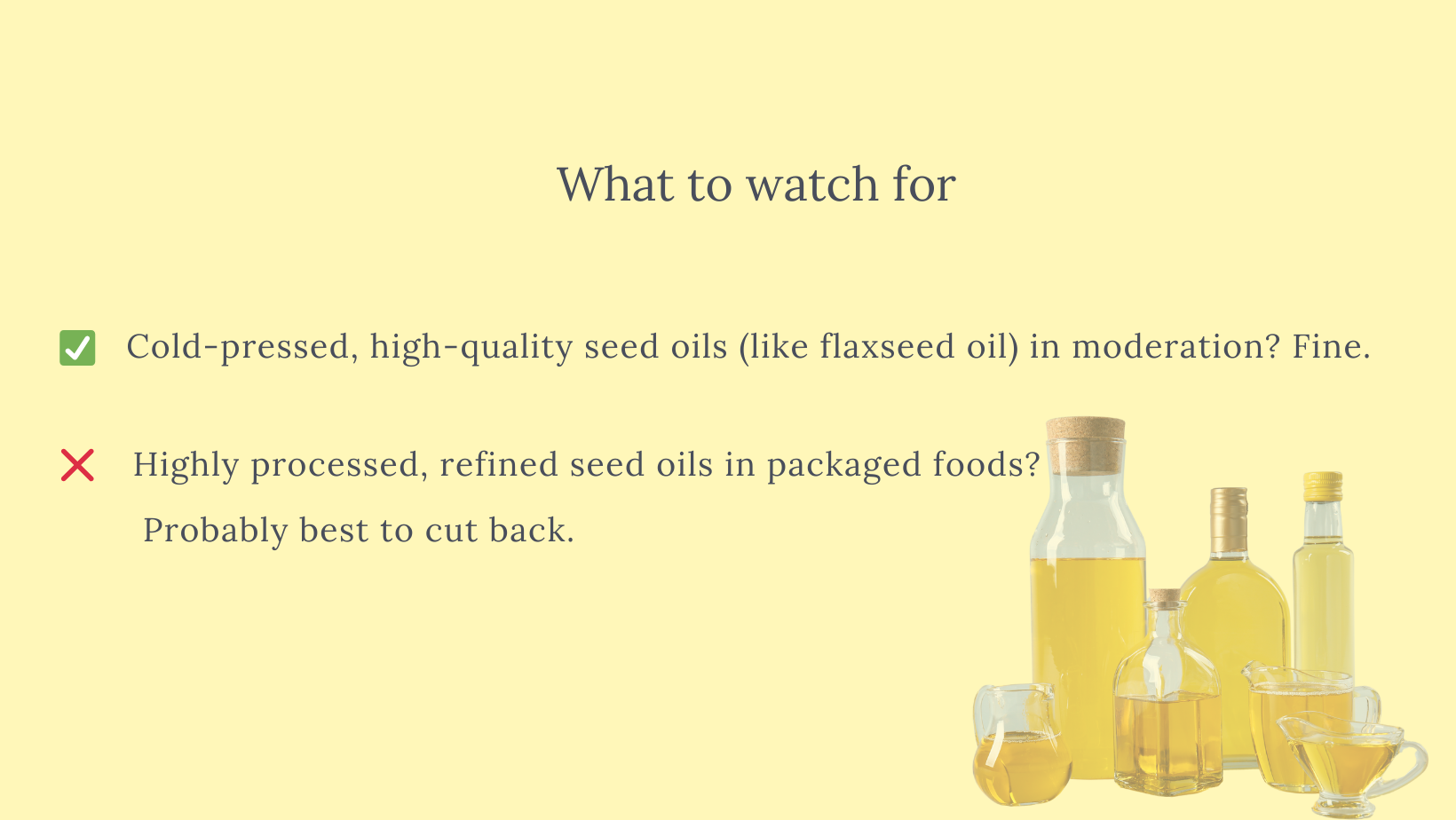Seed Oils and Women’s Health: Friend or Foe?

Ah, seed oils. You’ll find them in everything from your “healthy” granola bar to that salad dressing you love. Some people call them toxic, while others say they’re heart-healthy. So what’s the real deal?
For women, especially as we navigate different life stages—fertility, hormonal shifts, metabolic changes, and menopause—the type of fats we eat actually matters. The spotlight here is on omega-6 fatty acids, which are abundant in seed oils. Are they fueling inflammation and making our bodies work against us? Or is it just another nutrition myth?
Let’s break it down.
What Are Seed Oils, and Why Do They Matter?
Seed oils—like sunflower, soybean, canola, corn, and safflower oil—are everywhere. They’re cheap, they last forever on shelves, and food companies love them. But they also pack a high dose of omega-6 fatty acids, which can be problematic when they overshadow omega-3s (found in fish, flaxseeds, and walnuts).
Here’s the issue:
- Our ancestors ate a 1:1 to 4:1 omega-6 to omega-3 ratio.
- Today, we’re hitting 15:1 or worse, thanks to processed foods drowning in seed oils.
- The result? More inflammation, hormonal disruptions, and potential health risks.
So let’s talk about how this imbalance affects women’s health.

1. Fertility, Hormones, and Reproductive Health
Trying to conceive or regulate your cycle? Your fat choices might be playing a bigger role than you think.
🔹 Too much omega-6 may fan the flames of chronic inflammation, which is linked to conditions like PCOS, endometriosis, and irregular ovulation—all of which make getting pregnant a challenge.
🔹 If that weren’t enough, an imbalanced omega-6 to omega-3 ratio may increase miscarriage risk and make it harder for an embryo to implant.
🔹 On the flip side, shifting to an anti-inflammatory diet—less seed oils, more omega-3-rich foods—could help regulate cycles and improve fertility outcomes.
2. Metabolism, Heart Health, and Stronger Bones—It’s All Connected
As we get older, our metabolism slows, our bones weaken, and our risk for heart disease creeps up. The kind of fats we eat plays a massive role in whether we’re protecting our bodies or adding fuel to the fire.
🔸 Metabolism & Blood Sugar – Some studies suggest excess omega-6 intake may contribute to insulin resistance, making it harder to manage blood sugar, energy, and weight. Women with PCOS, prediabetes, or hormonal imbalances may feel this even more.
🔸 Heart Health – Here’s where things get interesting. Omega-6 fats in seed oils are not inherently harmful. Some research says omega-6 can help lower cholesterol and heart disease risk disease risk when replacing saturated fat —but when we go overboard (which, let’s be real, many of us do unintentionally), we set the stage for chronic inflammation, which drives heart disease, diabetes, and more.
🔸 Bone Health – If you’re in your 30s or 40s, bone density is already peaking, and by menopause, it starts to decline. Diets high in omega-6 and low in omega-3s may be linked to weaker bones and a higher risk of osteoporosis. The good news? Omega-3s (think salmon, walnuts, flaxseeds) help strengthen bones and reduce fracture risk.
3. Breast Cancer Risk—Another Reason to Pay Attention
Breast cancer is one of the biggest health concerns for women. And while one food won’t make or break your risk, research suggests that a high omega-6 to omega-3 ratio may not be doing us any favors.
On the flip side, getting more omega-3s while moderating omega-6 intake may help lower risk. Another example that it’s not about banning seed oils—it’s about getting the right balance.
So… Are Seed Oils Really That Bad?
Yes and no. The problem isn’t the oils themselves but how much we’re consuming and what we’re missing in our diet.

How to Find a Healthy Balance
✅ Choose your fats wisely. More salmon, less processed junk. Simple, right?
✅ Instead of obsessing over every drop of seed oil, focus on balance. Swap refined seed oils for extra virgin olive oil, avocado oil, and grass-fed butter—and make sure you’re getting enough omega-3s.
✅ Limit Processed Foods - Most of our omega-6 intake comes from packaged foods, dressings, and fried takeout. Cut back where you can. Load up on fatty fish, olive oil, nuts, and seeds. Your hormones will thank you.
✅ Prioritize Anti-Inflammatory Foods – Load up on olive oil, avocado, nuts, leafy greens, and antioxidant-rich foods to keep inflammation in check.
✅ Be Smart About Cooking Oils –
- Best for high-heat cooking: Avocado oil, ghee, coconut oil.
- Best for dressings & drizzling: Extra virgin olive oil, flaxseed oil.
- Minimize: Refined soybean, corn, and canola oil when possible.
Final Thoughts
You don’t have to swear off seed oils forever. But given their role in inflammation, metabolism, hormones, and long-term health, it’s worth being mindful of where they show up in your diet.
Focus on balance, whole foods, and smart swaps, and your body will handle the rest.